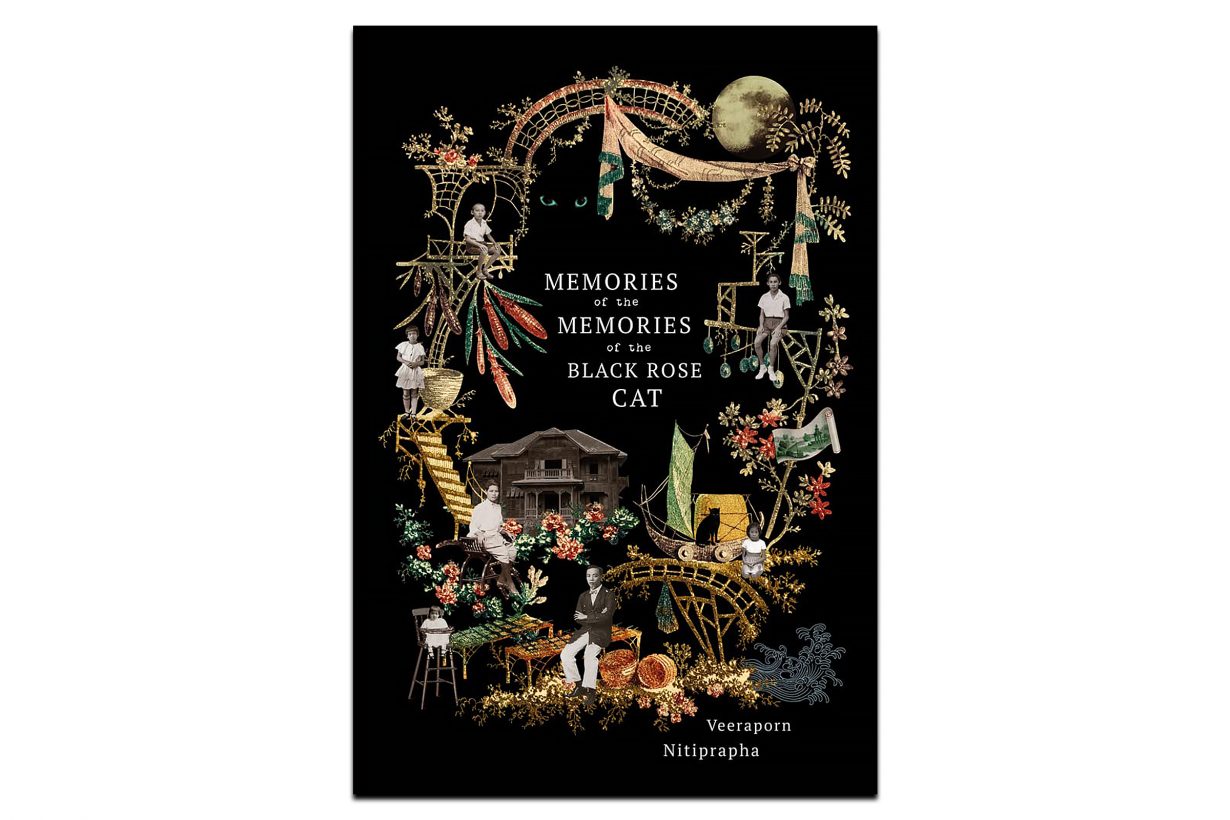The author’s lyrical second novel, Memories of the Memories of the Black Rose Cat, pits maladjusted characters against a land teeming with ‘natural aberrations’

A debilitating melancholia fills Veeraporn Nitiprapha’s second novel: a curlicued family saga set in a Siam beset by World War II, floods, anti Chinese riots and era-defining rebellions and coups. The patriarch at its centre longs to return to his real home in China, from which he fled due to war and drought. One of his sons, a morose soldier with a penchant for woodwork, spends nine months pining for a lost love ‘amidst the sawdust of his miniature boats’. And a foul-mouthed daughter mocks life by mocking everything. ‘She was like a knocked over glass… its shards scattered and gashing the skin of onlookers,’ writes Nitiprapha. These and other histrionic characters quickly seem less like real, rounded people than extreme weather patterns – typhoons of emotion, angry cumulonimbi set to burst.
Nitiprapha’s first novel, The Blind Earthworm in the Labyrinth (2013), won her the 2015 Southeast Asian Writers Award. Judges hailed its melodrama and mannerisms redolent of trashy Thai soap-operas and its rhapsodic prose steeped in a neogothic cornucopia of music and floral references. Through a magical-realist disposition that finds omens in the mundane and minute, that book questions Thai notions of family unity, and, as the translator of both novels, film-critic Kong Rithdee puts it, ‘imagines a tale of tragic romance in which hot tears and sad lovers become faint echoes of Thailand’s larger hopelessness’.
Many of the same qualities hold true for Memories of the Memories... (which, in 2018, picked up the same award as did her first, making Nitiprapha the first woman to win twice). It, too, consists of episodic, hazily connected, almost picaresque chapters. Its characters are also maladjusted types prone to vituperative outbursts or crying fits, while the supernaturally charged Thailand they inhabit also teems with natural aberrations that serve as macropolitical premonitions or ripples (at one point, a woman is tipped off about the impending Second World War through ‘a radio report about a swarm of diabolical bees that mass-stung a woman to death’). And once again, Rithdee has preserved the free-flowing lyricism of the Thai original with aplomb. Many sentences are so melodious and addictive that questions about what has been gained, as well as lost, in the process are left hanging.
Yet a sense of diminishing returns is also hard to shake. Take the first character introduced: the third-generation grandson, Dao. In the opening pages, he emerges as a young boy prone to drowning himself in thought. He imagines himself as an ant traversing ‘dark patches of moss interspersed with small plants whose names he didn’t know’. He develops an instant dislike to the book’s titular Black Rose cat (named after a popular big-band song and the bizarre fur patterns cascading down its back), which uses telepathy to send ‘idiotic interjections into his head’. He listens intently to Grandma Sri’s tales of the strange creatures encountered at temple fairs, such as ‘the bird with golden down that spoke an ancient Khmer language without being taught’. At times, you gorge on the buffet of overripe Márquezian visions – but they feel like too much extraneous world-building at others.
That said, each character’s self-absorption is, in a way, the whole point: a hereditary trait born of a certain liminality or outsiderness. The book to which Memories of the Memories… has been most illustratively compared, former Thai Prime Minister Kukrit Pramoj’s Four Reigns (1953), is a chronicle of a highborn lady whose life is deeply intertwined with important political events between the reign of King Rama V (1868–1910) and King Rama VIII (1935–46). The trajectory of Nitiprapha’s Chinese settlers – ‘a prototype of the Thai middle-class that would flourish in the following decades’, writes Rithdee in his translator’s note – also spans four reigns. But history glides right past them; the only thing they are deeply intertwined with are fleeting lovers or the labyrinthine enigmas of their own egos. Yet, through an intoxicating micropolitics of the immigrant family – wherein yearning and the sublime offer a consolation for low social standing, and continuously remade memories provide a fragile sense of home – Nitiprapha memorably evokes a diaspora’s dreams and disenchantment.
Memories of the Memories of the Black Rose Cat by Veeraporn Nitiprapha, translated by Kong Rithdee. River Books, £9.99 (softcover)